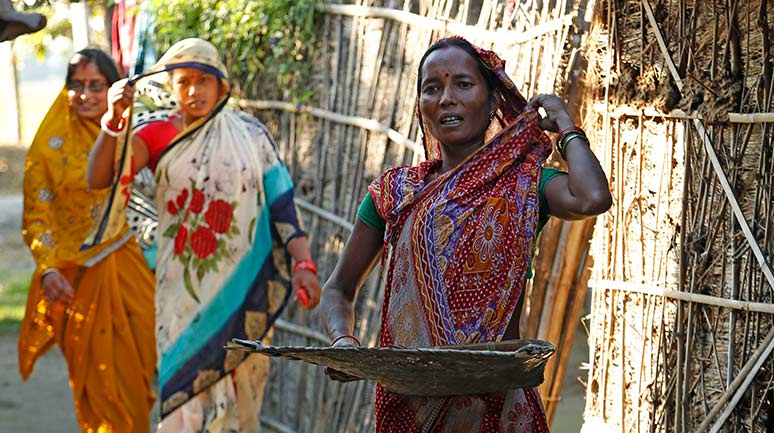Building Trust with the Surjapuri Community


Reminiscing about his early days as Development Apprentice in the village, the author muses on his learnings and challenges as he begins to understand the challenges and tries to build inroads of trust with the women in the community
Beginning My Journey
U NDERSTANDING THE Context of a community, I learned, is the first step in being able to work with them. My first realization of this was when I was in Kalpeer village. I had freshly joined the Bahadurganj team of PRADAN in Northeast Bihar and was accompanying my colleague to the village.
It was getting late and among the few persons there was a young man with luggage. He said he was going to Punjab to work. Out of concern for him, I said that he should leave soon otherwise he would face a problem because this was such a remote area. The young man took umbrage and in an annoyed tone said, “Aap to sheher ke rehne wale hain, humein kuch samajhte hi nahi, kya nahi hai hamare pas, kyonki aap padh likh liye to aap achchhe hain aur hum pichhde (You belong to an urban area so you demean us. We have everything we need; just because you are educated, you think you are better off and we are backward).” I was dumbfounded by this statement. Perhaps, he was right. Born and brought up in a metro city, I did have a perception that rural areas were backward and downtrodden. Aambari mainly comprises the Surjapuri Muslim community, who speak the Surjapuri dialect. I must confess, here, that being a Hindu, I initially, had many reservations about staying in a Muslim village. I had to stay with them in their homes and I feared that I would not be accepted.
Aambari mainly comprises the Surjapuri Muslim community, who speak the Surjapuri dialect. I must confess, here, that being a Hindu, I initially, had many reservations about staying in a Muslim village. I had to stay with them in their homes and I feared that I would not be accepted
Soon after this incident, as part of my assignment as Development Apprentice in PRADAN, I entered the life-world of the community. To understand the context of the village and of the community, I was 36 NEWSREACH NOV_DEC 2018 to stay in Aambari village for 15 days. Aambari mainly comprises the Surjapuri Muslim community, who speak the Surjapuri dialect. I must confess, here, that being a Hindu, I initially, had many reservations about staying in a Muslim village. I had to stay with them in their homes and I feared that I would not be accepted.
My fear came alive when I began to feel unwanted in this village of 35 families. I noticed that the people would change the subject of their discussion when they saw me approaching. There were women SHGs in the village and whenever I sat in on their meetings, they would only address me to ask me when they would receive the loan and of how much. I had no answer to these questions. The women would not interact directly with me and the men would always posture as if they knew everything and did not need to take my opinion on anything. They would talk about mobile phones, bikes, refrigerators and everything except for themselves and their life-world. This indifference of the people was painful. I also came to know that there were some arguments among some of the families about why a Hindu boy was living in their house. They questioned the purpose of my stay. I became frustrated and fearful. It was becoming difficult for me to complete my village stay. I was about to quit, when I thought that, maybe, I needed to understand the community better. I needed to understand their point of view and ‘why they were the way they were’.
Akhilesh Sharma works as an Executive in PRADAN and is based in Koraput district, South Odisha.

